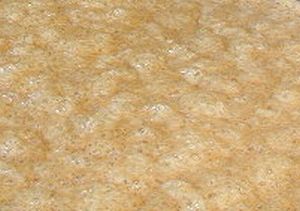Fermented Stevia Extract Shows Potential in Pancreatic Cancer Treatment

A recent study conducted by researchers at Hiroshima University has unveiled promising results regarding a fermented extract of stevia, a natural sweetener, in the fight against pancreatic cancer. The research, published in the *International Journal of Molecular Sciences* on April 28, 2025, highlights the extract's ability to selectively target and eliminate pancreatic cancer cells while sparing healthy cells, marking a significant advancement in cancer treatment options (Sugiyama et al., 2025).
Pancreatic cancer is notoriously aggressive and resistant to standard therapies, contributing to a five-year survival rate of less than 10%, largely due to late-stage diagnoses and limited treatment efficacy. Traditional treatments such as chemotherapy have limited success, prompting researchers to explore alternative, less toxic remedies derived from natural sources (American Cancer Society, 2023).
Stevia, known scientifically as *Stevia rebaudiana*, is an herb native to South America and widely utilized in the food industry as a zero-calorie sweetener. Its leaves are rich in bioactive compounds, including flavonoids and phenolics, which have been associated with various health benefits, including potential anticancer properties. Previous studies suggested that purified stevia compounds could inhibit cancer cell growth; however, the whole leaf extracts exhibited only modest effects, necessitating further enhancement of their pharmacological potential (Figueira et al., 2022).
The innovative approach taken by the Hiroshima University team involved the use of microbial fermentation to transform the bioactive components of stevia. The researchers isolated over 1,300 strains of lactic acid bacteria (LAB) from various natural sources and focused on a specific strain, *Lactobacillus plantarum SN13T*, obtained from banana leaves. This fermentation process aimed to boost the anticancer properties of stevia by converting its compounds into more potent forms (Danshiitsoodol, 2025).
The results were compelling. The fermented stevia leaf extract (FSLE) demonstrated significantly greater cytotoxic effects on pancreatic cancer (PANC-1) cells compared to non-fermented extracts, with minimal toxicity to healthy human kidney cells (HEK-293). This selective toxicity is a critical characteristic for any viable cancer treatment, as it minimizes damage to healthy tissues while targeting malignant ones (Sugiyama, 2025).
Further assays indicated that FSLE not only halted the ability of cancer cells to proliferate but also inhibited their migration, thereby preventing the spread of tumors. Chemical analysis identified a key compound, chlorogenic acid methyl ester (CAME), which was found to be more potent than its unfermented counterpart. CAME was shown to induce apoptosis in PANC-1 cells, promoting programmed cell death, while suppressing anti-apoptotic genes (Danshiitsoodol, 2025).
The implications of this research extend beyond pancreatic cancer treatment. The findings suggest that microbial fermentation can enhance the therapeutic potential of other medicinal plants, paving the way for innovative natural therapies. Earlier studies have also indicated that LAB fermentation can boost the efficacy of other herbal extracts against various cancers, reinforcing the promise of probiotics in oncology (Zhang et al., 2023).
Looking ahead, the Hiroshima research team plans to conduct further studies using animal models to evaluate the effectiveness and safety of FSLE in vivo. Successful outcomes in these preliminary trials could lead to human clinical trials, potentially offering new hope for patients facing one of the most challenging cancers today (Sugiyama et al., 2025).
In conclusion, the exploration of fermented stevia extract represents a novel approach to cancer treatment, leveraging natural fermentation processes to enhance the anticancer properties of herbal remedies. This research exemplifies the potential of natural products in modern medicine, suggesting a future where traditional knowledge meets cutting-edge scientific innovation in the battle against cancer.
Advertisement
Tags
Advertisement





